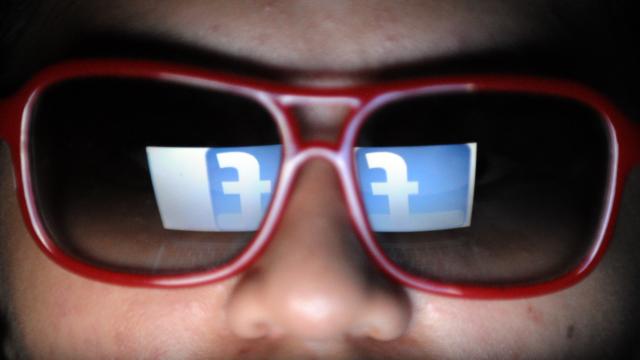Everyone and their mother is supposedly building a pair of smart glasses now, Facebook included. However, a BuzzFeed News report notes that apparently, Facebook is thinking about building facial recognition into its forthcoming pair of AR glasses. Um, no thank you.
In an internal meeting, Andrew Bosworth, Facebook’s vice president of augmented and virtual reality, said that the social media giant was considering whether it had the legal capacity to include facial recognition features in its AR glasses. According to Buzzfeed, Bosworth said facial recognition “might be the thorniest issue, where the benefits are so clear, and the risks are so clear, and we don’t know where to balance things.” His comment was in response to an employee’s question about whether such technology had the potential for “real-world harm,” specifically stalking. As for potential benefits, Bosworth pointed to secretly looking up an acquaintance’s name if you’d forgotten it or have face blindness.
[referenced id=”1378783″ url=”https://gizmodo.com.au/2020/09/facebook-is-trying-to-make-smart-audio-a-thing-so-youll-want-to-buy-a-pair-of-facebook-ar-glasses/” thumb=”https://gizmodo.com.au/wp-content/uploads/2020/09/04/t9kbvvyspghwb9yhpdzo-300×168.png” title=”Facebook Is Trying to Make ‘Smart Audio’ a Thing So You’ll Want to Buy a Pair of Facebook AR Glasses” excerpt=”It’s no secret that Facebook has an interest in virtual and augmented reality, but today, the company published a deep dive into the audio component of this emerging tech. Put simply, Facebook’s trying real hard to make “smart audio” a thing.”]
There’s a lot to unpack here. For starters, it’s not encouraging that the comments seem to focus on the legality of whether facial recognition should be included on these AR smart glasses, rather than the ethical implications. The infamous incident in which a pair of Google Glass were ripped off a woman’s face in a bar sparked a national conversation about the privacy implications of smart glasses — and those didn’t have facial recognition. Facial recognition, even if you were to use it for “benign” reasons, presents a much bigger ethical quandary.
It’s unclear, for example, whether anyone would be able to opt out of their face being included in whatever database Facebook would use to enable this feature. It would be pretty heinous if you were walking around outside and unknowingly passed a creep who could then learn your name and potentially access your Facebook profile from a 2-second encounter. Consent should be at the forefront of any facial recognition technology, so it’s discomforting that BuzzFeed reported Bosworth was apparently critical of Illinois’ Biometric Information Privacy Act (BIPA), which requires all companies that collect biometric data obtain consent before doing so. In January, Facebook was ordered to pay a $US650 ($839) million settlement in an Illinois class-action lawsuit alleging the company violated BIPA by collecting facial recognition data without consent.
With all this in mind, it’s baffling Facebook would even consider including the technology in a device that already has a history of unsettling people. That said, it isn’t a given that Facebook will ultimately include facial recognition in its smart glasses. In a tweet following BuzzFeed’s report, Bosworth acknowledged that facial recognition is “a hugely controversial topic” and that the company would have a “very public discussion about the pros and cons.” He also emphasised that Facebook’s smart glasses “would be fine without [facial recognition] but there were some nice use cases if it could be done in a way the public and regulators were comfortable with.”
In our meeting today I specifically said the future product would be fine without it but there were some nice use cases if it could be done in a way the public and regulators were comfortable with.
— Boz (@boztank) February 25, 2021
The latter part is the crux of the issue here. Facial recognition is still a hotly debated technology and by no means is there a societal consensus on how it should be used. Earlier this month, Minneapolis banned police from using facial recognition tech, and back in November, the Los Angeles Police Department did the same. In total, 13 cities across the U.S. have banned local law enforcement from using the technology. Several cities, including San Francisco and Boston, have also banned government use of facial recognition. And even if — and it’s a big if — people and legislators miraculously cozied up to the technology before Facebook’s anticipated launch of these smart glasses later this year, Facebook of all companies doesn’t have the greatest privacy track record.
Put simply, society is barely warming up to the idea of putting extremely simple smart glasses on their faces — let alone a pair with facial recognition. Devices like these have failed before, and will likely fail again, because no company thus far has successfully convinced consumers this is a gadget they absolutely need. If Facebook wants to do this the right way, it will release a pair of smart glasses that solve consumers’ problems — not a pair that immediately knocks over an entire barrel of worms.
